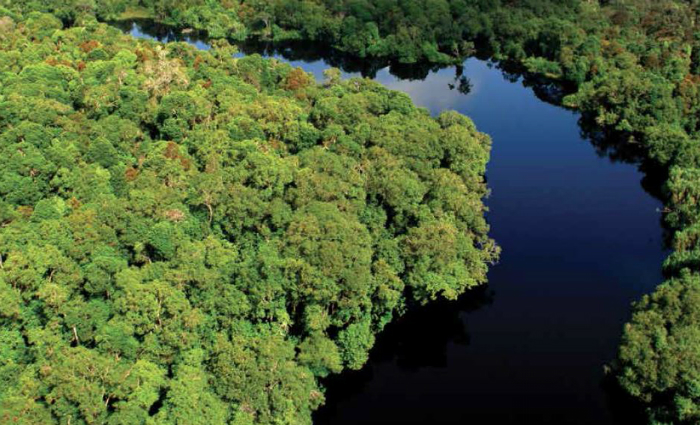
Ostracised paper manufacturer Asian Pulp and Paper (APP) is making a comeback in the Australian print market, but still has a way to go before it convinces most of its former customers to do business again.
Australia’s second biggest paper merchant BJ Ball is the first of the big three to allow APP back into the fold, saying the industry should continue to support the paper manufacturer’s efforts to ensure sustained progress is made. Spicers and Doggetts are monitoring developments at APP.
BJ Ball marketing manager Tony Bertrand says: “APP is currently supplying us a high quality range of uncoated products which forms part of our offset offering.”
“We acknowledge the recent work APP has done as well as many other pulp and paper manufacturers across the world in managing forest conservation policy,” he says.
The giant Indonesian APP group is the world’s second biggest paper manufacturer, and until five years ago was a major supplier to the Australian print industry, through all the main merchants.
However, APP became a pariah in 2009-2012 after a long campaign by Greenpeace and other NGOs which claimed it was engaged in widespread destruction of Indonesian rainforests, resulting in more than 100 of its major customers, including Australia’s paper merchants, pulling the plug.
[Related: Read the whole APP saga]
In a major positional change, Greenpeace, which waged the bitter, decade-long war against the paper manufacturing giant, has laid down its arms. Senior campaigner Reece Turner says the organisation is encouraged APP has dealt with the allegations, invested resources into transparency, and acted to rein in loggers.
“It’s a dramatic turnaround, APP is slowly becoming a leader in this area,” he says.
“We think trading with APP could fit within a progressive zero deforestation policy for any company.”
A year after APP vowed to completely clean up its act, and launched a wide-reaching Forest Conservation Policy that included a commitment to zero deforestation, full transparency of its operations, and severe penalties for suppliers found breaking the rules, opinion is finally starting to turn in its favour.
APP representatives are upbeat about the company’s future in Australia and have signalled other customers may soon to follow BJ Ball’s lead.
While other paper merchants are not willing to say much on the record, they seem to agree APP is making progress, but the revocation of its Forest Stewardship Council (FSC) certification still leaves questions over APP.
Andy Preece, managing director of Paperlinx Australian subsidiary Spicers, echoes this feeling. “From an environmental positioning point of view, Spicers sees APP no differently to any other international mill group in that a prerequisite for supply is third party verified accreditation under FSC or Programme for the Endorsement of Forest Certification (PEFC),” he says.
KW Doggett managing director Simon Doggett says: “We have a supplier relationship with APP and continue to monitor their sustainability accreditations and carbon footprint.”
[Related: More paper news]
Gordon Thomas, sales director for AAP's Australian affiliate Paper Force, says confidence in APP has gradually grown since it announced an end to natural forest clearance.
“We spent a lot of last year updating people on what APP is doing and we seem to be seeing the benefit of that now with clients beginning to re-engage,” he says.
“Some of the larger players have placed orders to test the waters and we are looking forward to expanding that over the course of this year as APP continues to prove it is serious about its commitments.”
Darragh Brennan, sustainability manager of affiliate Solaris Paper, says the industry has been waiting to see if the FCP would hold and if NGOs were positive.
“We’d like to think customers will be encouraged, we want to be doing the right thing,” he says.
World Wildlife Fund Australia spokesman Tim Cronin was more guarded than Greenpeace, advising companies to wait for independent, third party verification of APP’s policy implementation.
“It looks good on paper, but there’s a still a lot of work to do to prove that it can and will be done,” he says.
“Moreover, APP’s commitment needs to go further than to protect what little forest is remaining. It needs to include restoration of key forest and peatland ecosystems impacted by the company’s past operations.”
That third party accreditation is still a way off, with APP being one of only two companies deemed so irresponsible and toxic to reputations that it not only lost its FSC certification but was completely disassociated. The FSC has indicated it will consider re-association this year after APP’s progress is independently audited.
Brennan says: “APP regards the FSC certification system as one of the world’s most credible standards. The FSC board of directors has welcomed the FCP and are interested in understanding how the policy’s objectives will be achieved.”
“We hope that their interest will ultimately lead to a future agreement to consider formal re-association,” he says.
[Related: More environment news]
Regaining certification is a long and multi-levelled process that starts with independent verification of APP’s reformation, which will be assessed later this year by environmental organisation Rainforest Alliance.
The NGO’s Australian and Oceania representative Anita Neville says internationally recognised Canadian forester Keith Moore will lead an eight-member team of foresters, social scientists and carbon experts to study 20 of APP’s 38 concessions, more than one million hectares of the total 2.6 million ha area, for 3-4 months to check the FCP’s implementation.
A ninth team member will assess if APP has enough plantation trees to meet demand now and in the future if their former customers return.
Neville says the organisation is currently developing performance indicators and expects to be in the field by mid-March with a final peer-reviewed report in September.
“It will be valuable for the many stakeholders that want to know the accuracy of the FCP,” she says.
Until then, APP managing director of sustainability and stakeholder engagement Aida Greenbury is pleading with the industry to support the company.
“It is time for all parties to get active and start working together. The days of campaigning against businesses that have shown commitment to change the way they operate, as we have, should be brought to a conclusion,” she says.
“Now is the time to focus on the future and to develop solutions to the complex issues associated with forestry in Indonesia and to promote responsible practise.”
Comment below to have your say on this story.
If you have a news story or tip-off, get in touch at editorial@sprinter.com.au.
Sign up to the Sprinter newsletter


